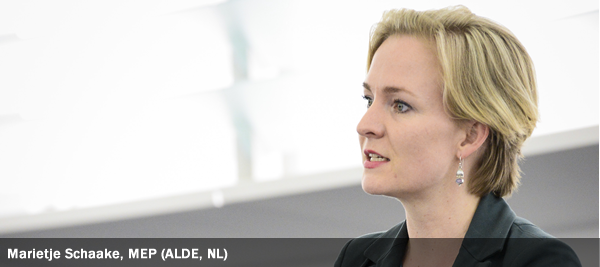
Member of the European Parliament, Marietje Schaake (ALDE/D66), has underlined the importance of the start of negotiations on a trade agreement between the European Union and Tunisia. Today, the European Parliament debated the issue and tomorrow a resolution on the topic will be voted.
Schaake stated: “Tunisia is the only country in a successful transition towards democracy after the popular uprisings in North Africa and the Middle East 2011. EU support during this difficult phase, and the strengthening of democratic reforms in Tunisia are key, especially since the region is still very unstable and the situation still fragile. A lack of jobs and opportunities was one of the main reasons for massive popular demonstrations in 2011 and many of the problems are still felt by people every day. Economic growth will be embedded in rules through a trade agreement, which should enforce incentives for further economic and institutional reforms.”
Conditions for Successful FTA
Given Tunisia’s fragile economic situation, the EU will work on an asymmetric trade agreement, whereby the European market is opened more to Tunisian companies than the other way around. This should give Tunisia time to adjust. Schaake: “We need to make sure that we do not flood the Tunisian market with European goods, which would be problematic for Tunisian producers. However, it must also be clear that Tunisian products need to adhere to European standards. The trade agreement must also contribute to extending European standards in the field of environment, consumer protection and workers’ rights to Tunisia. This will also increase Tunisia’s competitiveness in the rest of the world.”
Tunisia is impacted by the continuing crisis in Libya, including by 1.8 million Libyan refugees and continued arms, drugs and human trafficking. Schaake: “With a trade agreement we can help support the Tunisian economy both by providing more opportunities for Tunisian companies and citizens on the European market as well as creating an incentive for reform in the country itself. This is especially important given Tunisia’s relatively young population. However, the trade negotiations also need to be supported by a broader strategy to help and support the fledgling Tunisian democracy.”